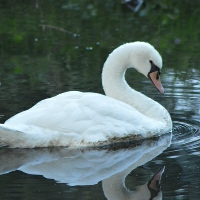In the second half of 2022 in Guangdong, the printing time of the admission card for the educational capital interview is from January 3 to 7, 2023. The printing time varies in some provinces. The second half of 2022 is from January 3 to 8, 2023. The official website for printing the admission card for the teaching material interview is the primary and secondary school teacher qualification examination website.
Guangdong 2022 second half of the teaching interview admission card printing entrance
Click to enter
Guangdong 2022 The second half of the year printing time of the admission card for the educational capital interview
In the second half of 2022, the printing time of Guangdong Educational Endowment Interview Admission Card: January 3-8, 2023. After the examinee completes the payment of the tuition interview fee, he/she will log in the "China Education Examination Network - Primary and Secondary School Teacher Qualification Examination Column" from January 3 to 8, 2023 to query and print the admission card for the tuition interview and obtain the time, place and relevant information of the tuition interview.
The interview for teaching resources takes the form of structured interview, situation simulation, etc., and is conducted through the links of lesson preparation (or activity design), trial lecture (or demonstration), defense (or statement), etc. According to the Standards for Qualification Examination of Primary and Secondary School Teachers (Trial) and the Examination Outline (Trial) (interview part).
The teaching interview mainly assesses the examinee's basic teaching qualities such as professional ethics, psychological quality, appearance, speech expression, thinking quality, and basic teaching skills such as teaching design, teaching implementation, and teaching evaluation. For the examination outline of each subject, please log on to "China Education Examination Network - Primary and Secondary School Teacher Qualification Examination Column" for query.
Printing process of Guangdong educational capital interview admission card:
Step 1: The examinee logs on to China Education Examination Network within the specified time.
Step 2: After entering the official website, candidates can click "Online Registration" in the "Candidate Service" area at the bottom right corner to enter the teaching resources interview registration system.
Step 3: After entering the teaching resources interview registration system, the examinee selects the registration province and click "Click Login".
Step 4: The examinee enters "name", "ID card number" and "login password", and then clicks "login".
Step 5: After logging in, click ". Interview Admission Card", and then download the pdf teaching resources interview admission card file according to the prompt.
Step 6: After downloading, check your personal information carefully, and print the admission card for the educational capital interview directly.
How difficult is the interview examination for teaching resources
The teacher qualification interview is not difficult, especially for the well prepared candidates, the probability of passing the teaching qualification interview will be improved. Generally, there will be 20 minutes of preparation time for the teaching materials interview, of which 5 minutes will be used for the reply of random questions, 10 minutes for the trial lecture, and the remaining 5 minutes will be used for the reply around the content of the trial lecture.
If you want to improve the pass rate of your teaching resources interview, you should practice more at ordinary times, and be familiar with the relevant course content in combination with the subjects to be tested. At the same time, some skills should be used to prepare for the teaching interview, and on this basis, consolidation exercises should be carried out. In addition, pay attention to your appearance, dress appropriately, and express your language and behavior politely on the day of the interview.
Those who can participate in the teacher qualification interview have passed the written examination first. Before the formal interview, they should practice carefully in combination with the subjects they applied for. The structured interview is adopted for the teaching interview. The questions selected in the teaching interview exam are not the same for everyone. The probability of passing the teaching interview will increase if the preparation is sufficient.











